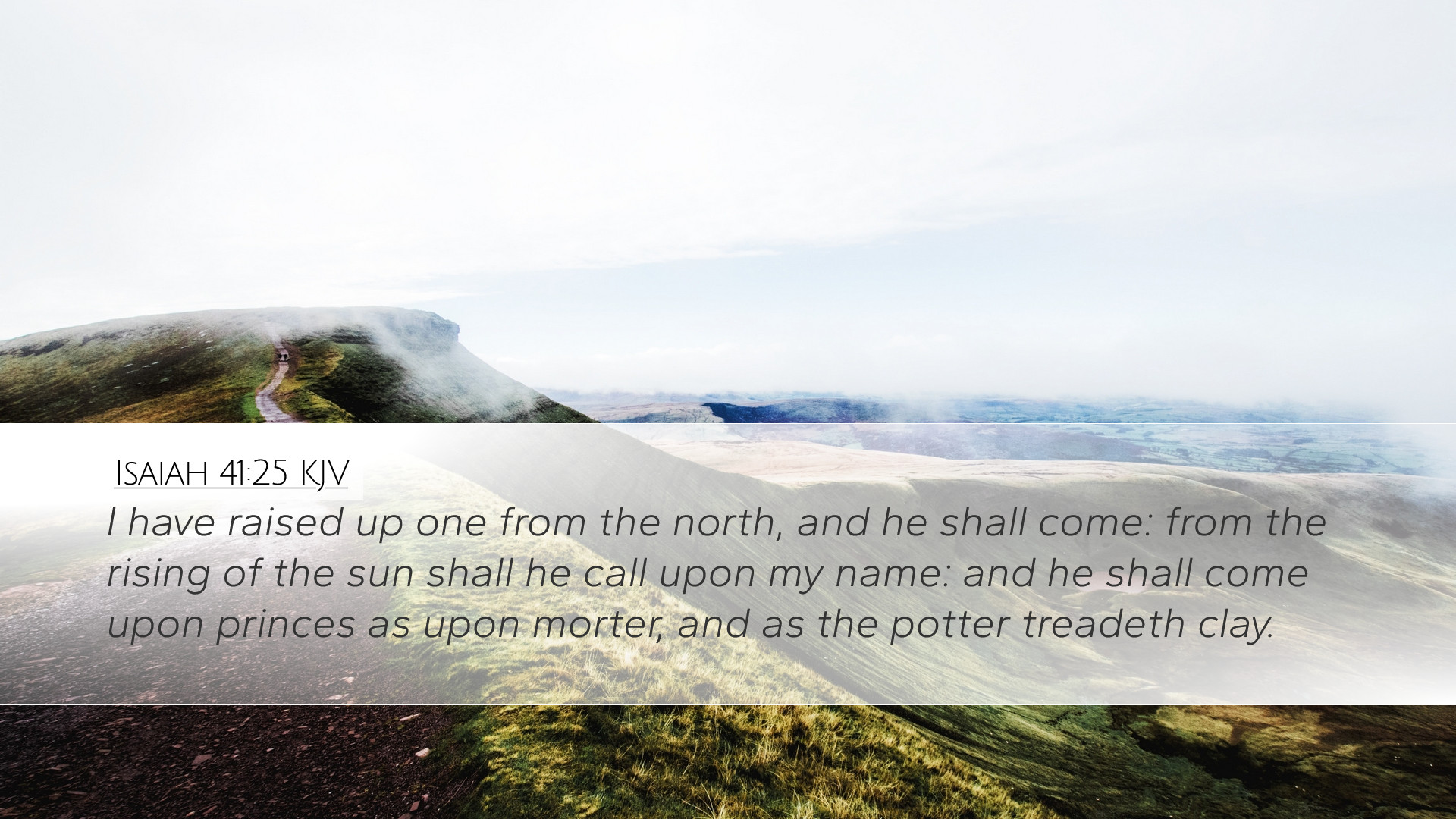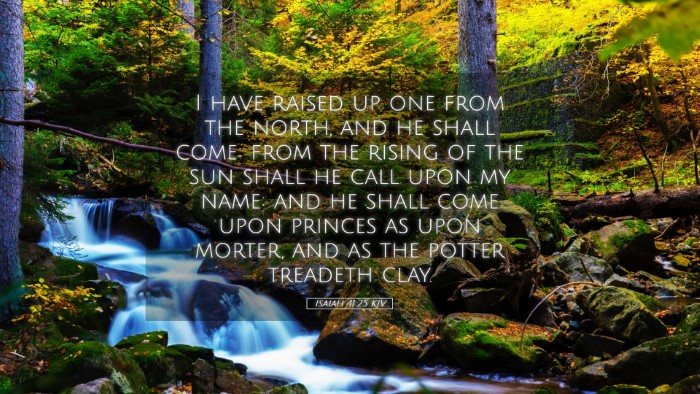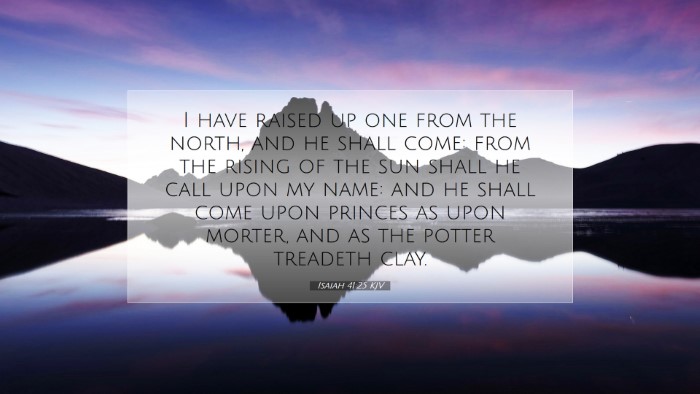Commentary on Isaiah 41:25
Isaiah 41:25 states, "I have raised up one from the north, and he shall come: from the rising of the sun shall he call upon my name: and he shall come upon princes as upon mortar, and as the potter treadeth clay." This verse provides a profound insight into God's sovereignty and the prophetic announcement concerning a deliverer who will execute His purposes.
Contextual Overview
This chapter of Isaiah is set against the backdrop of God's challenge to the idols and false gods of the nations. God is demonstrating His unique power and control over history. The mention of one raised up from the north suggests a specific yet enigmatic figure who is destined to fulfill God's will, propelling the nation of Israel toward restoration.
Insights from Matthew Henry
Matthew Henry emphasizes the divine orchestration in raising up leaders and nations. He interprets the figure from the north as a symbol of God’s judgment and deliverance. According to Henry, this reference likely points towards Cyrus the Great, who would emerge from the north and lead the Persian conquest over Babylon, delivering Israel from captivity. This interpretation highlights God's ability to raise unexpected leaders who fulfill His divine plan.
The King as God's Instrument
Henry asserts that God uses even pagan kings to enact His will. The mention of "call upon my name" underscores that the ruler's mission is aligned with God's purpose, potentially hinting at a recognition of Yahweh, the God of Israel. The analogy of princes being trampled as "mortar" suggests the utter domination and effective removal of opposing powers, reinforcing the theme of divine authority over human kingdoms.
Insights from Adam Clarke
Adam Clarke provides a more detailed exegesis of the phrase "from the rising of the sun." He notes that it symbolizes the east, presenting an image of a sovereign setting forth as the dawn breaks, bringing hope and new beginnings to God's people. Clarke emphasizes that this language serves both as encouragement to the Israelites and a warning to their enemies, illustrating God’s control over national fortunes.
Symbolism of Mortar and Clay
Clarke delves into the symbolism of "mortar" and "potter." He explores the potter's role in shaping the clay, describing how God, as the ultimate potter, shapes kingdoms and individuals according to His will. The process of treading clay signifies authority and creative power – it reinforces the notion that human leaders operate within the framework of God's sovereign plan, being shaped and molded for His purposes.
Insights from Albert Barnes
Albert Barnes approaches this verse with emphasis on the prophecy pertaining to Cyrus. He articulates that Cyrus is explicitly named as the instrument of Israel's liberation in later chapters of Isaiah (Isaiah 45). Barnes observes that the prophecy underscores God's control not only over Israel but also over the broader geopolitical landscape, demonstrating His supremacy and orchestrating events for Israel's benefit.
Theological Implications
Barnes points to the theological implications of God's sovereignty as displayed in this verse. The mention of nations being subdued like mortar reminds readers that God’s power is absolute; His plans will not be hindered by human opposition. This is a reaffirmation to the Israelites that their God reigns supreme and is actively working for their deliverance, which provides hope in midst of despair.
Contemporary Applications
For modern readers, this verse continues to resonate deeply. It serves as a reminder that God is actively at work in world affairs, shaping history according to His will. Pastors and theologians can draw upon the themes highlighted in this verse to encourage believers that, despite apparent chaos, God's purposes will ultimately prevail.
Encouragement for Believers
The promise of deliverance serves as continual encouragement to believers facing trials. Just as God raised a leader for Israel, He continues to provide leaders and circumstances that align with His divine timeline. This underscores the importance of steadfast faith amidst uncertainty and reinforces the message that God is both a true deliverer and a faithful sustainer.
Study and Reflection
- Historical Context: Understanding the historical backdrop of Cyrus' rule enhances comprehension of God's sovereignty in the context of His people.
- Divine Sovereignty: Reflect on God’s ability to use earthly leaders for heavenly purposes.
- Personal Application: Consider how God may be working in your life or community in unexpected ways.
Conclusion
Isaiah 41:25 beautifully encapsulates the themes of divine sovereignty, hope, and the transformative power of God’s mission. Throughout history, from the raising of leaders to the shaping of nations, God’s hand is evident in every moment. The insights drawn from Matthew Henry, Adam Clarke, and Albert Barnes collectively enrich our understanding and encourage both theological reflection and practical application for all believers.


